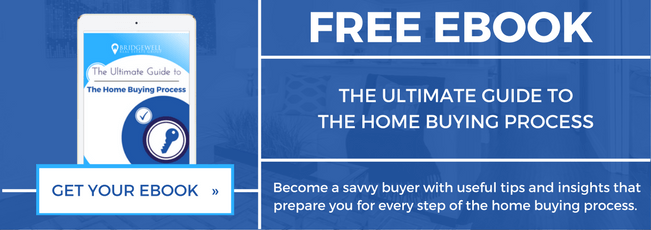Documents Needed for Mortgage Pre Approval Canada
Document Preparation for Purchasing
When purchasing a home, one of the most important steps is the mortgage pre-approval.
A pre-approval helps you understand the home price you can afford, which will allow you to budget and narrow down your home search.
This blog goes through the basics of documentation needed for a mortgage pre-approval in Canada so that you can get started on your home buying journey.
By completing this process you’ll reduce your stress and anxiety during the subject removal process, and have all your paperwork prepared and ready for when you need it.
Why is Pre-Approval Important?
Knowing how much you can afford to spend on a home and finding the right way to finance it are two of the easiest ways to increase the comfort of home ownership.
Before falling in love with a potential new home, you may want to obtain a pre-approval so that you can make sure you are staying within a comfortable price range and spending your time looking at properties you can reasonably afford.
The pre-approval meeting is the time to find out about different mortgage products that are available to suit your particular needs. Once the mortgage is pre-approved, your lender can typically hold and commit to the interest rate at the time of approval for 120 days with no obligation.
Having the income confirmation documents ready will help to speed up the pre-approval process, allowing you to search for your home sooner, and with the confidence of knowing how much you can spend for the home of your choice.
How to Get Pre Approved for a Mortgage
To get pre approved for a mortgage you’ll need to meet with a mortgage broker or a lender.
To determine how much you can afford and get the home buying process started, you’ll need to provide them with the below information and documents needed for mortgage pre approval Canada.
Documents Needed for Mortgage Pre Approval Canada
*Personal Information
- Government identification and details on yourself such as Age, occupation, marital status, children, etc.
*Information on your current financial situation/state of bank accounts
- This will include bank, branch, accounts and balances as well as information on remaining debts
*Further information on debts
- The lender will want full information on all debts so that they can run your debt service ratio. This is including but not limited to:
- Credit cards and line of credits
- Spousal or child support
- Car leases and payments
- Student loans
- Personal loans
*Source of down payment
- Confirmation of Down Payment and the source of where the money came from. The lender may also require the last 90 days of the transactions within the account(s) that the down payment is from. If the down payment is a gift, a gift letter may be required.
For more information on minimum down payment requirements, check out this blog: Down Payments 101
*Consent to run a credit history search
- Determining your credit score is an essential part of the pre approval process, and the lender will ask you for permission to pull your credit history. You may be asked verbally, but it is more likely that you will sign an authorization form allowing them to pull your credit history.
*Information on your Current Property
- Recent mortgage statement
- Current homeowner insurance policy
- Most recent property tax bill/statement
- Legal description of property
- Property Value
*Proof of Employment – Income Confirmation
If salaried or hourly employment (full time or regular part time)
- A letter from your employer on Company Letterhead which includes your name, length of service, salary or hourly pay rate and name and title of person signing the letter
- Proof of income (T4 slips, copies of atleast your last two paystubs, personal income tax returns, Notice of assessments for the last 2 years)
- Copy of a current Bank Account statement showing direct deposit of your income
If self employed or on contract
- Provide your last two years Notice of Assessments (NOA) from the Canada Revenue Agency as well as additional documents like the Statement of Business Activities.
*Other sources of income
- If you have other sources of income such as part-time work, rental income, or a pension then the lender could ask for back-up documentation. Be prepared to prove your income and have the lender review your tax returns, copies of paystubs, or tenancy agreements.
Why Your Credit Score is Important
The lender will have to check your credit score and review your existing debt. A “good” score is considered to be 680 or above. With a score above 680 you will qualify for A level lenders such as a major bank, and therefore have access to the best interest rates offered.
If your credit score is below 680 and above 600, lenders may have a way to work around it so that you’ll still be able to qualify for an A level lender. They’ll determine this by looking at other details of your finances, but otherwise you will qualify for a B level lender.
A mortgage pre-approval is extremely helpful, because it gives you the time and knowledge to improve your credit score if it is weak.
Some ways to improve your credit score are paying your bills on time, keeping debt loads to a minimum/under control, paying your bills regularly, and making sure you aren’t consistently “maxing” out your credit card by having it more than 80% of your limit (they flag you at 80%).
If you’re unsure of your credit score, you might want to try to pull your credit. You can go to www.Equifax.ca and pull your credit once a year without it deducting points or hurting your score.
After You Receive a Mortgage Pre-Approval
Once you receive your mortgage pre approval then you’ll typically have an interest rate hold for 90-120 days. This means that if your home purchase completes within that time frame then you will be able to keep your rate hold even if the rates increase.
With that in mind you’ll want to start narrowing down your home search and get in touch with a realtor.
When you purchase a home, enlisting a realtor to help you is a FREE service!
To find out more on what a buyer’s agent does, check out this blog post: What does the buyer’s agent do?
Accepted Offer Documents Needed for Mortgage Approval
Keep in mind that just because you have your mortgage preapproval completed it does not mean that you are guaranteed a mortgage for every property you write an offer on.
In order to finalize your mortgage, the lender will also review documents associated with the property and confirm that they are willing to lend you the money to purchase. If a property has major issues with things like leaking, then the bank may not be willing to finance that purchase. Therefore, the mortgage process involves both documentation regarding yourself/your income and the property you are purchasing.
*Upon coming to an agreement with a seller, you will need to provide:
- Purchase and Sale Agreement(s) include schedules and waiver
- Additional costs related to the property such as heating costs
- MLS Listing with photo which will include property taxes, additional strata fees (if any), square footage, style of home, etc.
- Depreciation Report, Form B, recent strata minutes, and other strata documents if strata
- An appraisal by the bank may also be required, specifically if you are putting more than 20% down.
- Your lawyer’s, builder’s and realtor’s names, addresses, postal codes, telephones, fax numbers and email addresses, as well as the contact information of the seller, if applicable
The Benefit of Working with a Realtor
The home buying process along with the pre approval process can be an overwhelming time, and it’s important that you have the proper guidance to ensure that you know what you’re doing.
A realtor is there to help guide you through the home buying process from start to finish. Whether it’s helping you prepare for your pre approval, sending you properties, helping you search for homes, or outlining the costs required to close, hiring a realtor to help you is a FREE service for buyers that will save you money, time, and unnecessary stress.
If you’re looking for a realtor to help walk you through the process from start to finish then give us a call or text at 604-319-0200 or email [email protected] to start a conversation.




